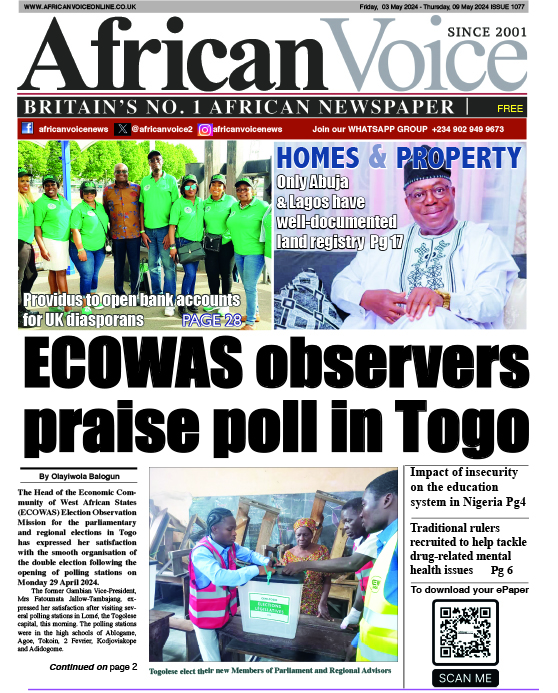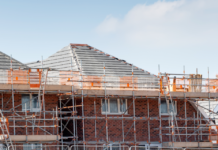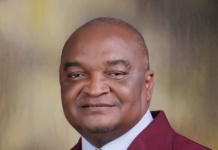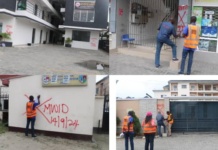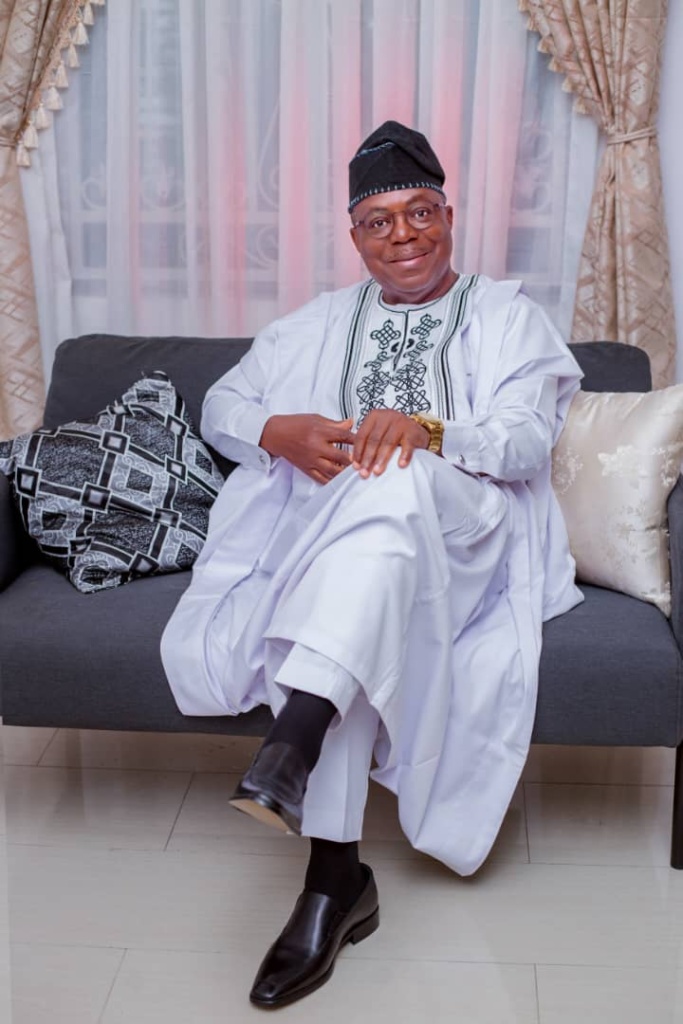
Chief Godwin Oghenede, Managing Director, Goddis Apartment, in this interview with Melvin Onwubuke pointed out that government needs to provide enabling environment to attract diaspora investment.
What’s happening in the real estate sector in Nigeria?
The real estate sector is the only sector that has potential, that is moving even though there are lots of bad eggs operating within the sector. There are lots of bad stories all over the place now especially, when they have scammed a lot of people from the diaspora. Because the diaspora community gets to just buy land based on a colourful magazine, for example to someone who is in the diaspora, when you say Ibeju-Lekki, they think the whole of Ibeju-Lekki is Lekki phase 1 or phase 2. I have seen a situation when people went and bought a jungle, that has no prospect for another 20 years. The developer just constructed the gates in a jungle and started selling. Even I bought into that in Epe axis when I did not know the terrain or understand the real estate sector well only to realise no development would happen there for a long time. So you learn the ropes.
One of the challenges in the sector is lack of regulation. How do you want the sector to be regulated for best practices
A lot of people get scammed by fraudulent developers because there is no regulation in the sector, the civil service sector is also part of the system. Developers buy land from the community, and they have to take the lands to the states for approval, Certificate of Occupancy, and other documentation. In the process, the state civil service becomes interested and people there want their cut. So the process becomes a chain, and then by the time the development starts, after the developer had introduced and sold most of the land off plan.
Off-plan is where the developers bring out glossy brochures, telling you how the estate would look in the future, in 5 years for example, and people jumping into it start buying. The developer says you pay let’s say N25 million now and spread the rest over five years period; while the developer promises you the project will be delivered in two years. Inflation then catches up with the so-called developer, they realise and sold off the entire land for let’s say N40 million, and N40 million can’t finish the project, they either abandon it, it becomes an abandoned project. The person who has deposited N20 million is stuck. You can’t get your money back, and you don’t even have the location of the developer. This is the issue in the sector.
What are the solutions to the challenges?
The problem lies in enforcement, because there are few laws in regards to that but enforcement is weak. It’s a Nigerian societal problem in general, enforcement is weak. The legal system is weak and corrupt. Most of the mega developers, if you see them, move around with convoys, and highly protected security officials for the fear of their lives. So these are the problems. The government can make the laws, but when the laws are not enforced, then they become nothing. However, Lagos State is trying in terms of regulations, at least
Lagos and Abuja are the only states in Nigeria with a well-documented land registry, a database where you can at least check the titles of any piece of land. But some of these states don’t have. Imagine you going to a state like Kano and asking for their database on land. My guess is, it does not exist. However, the real estate sector is still the fastest-growing sector of the economy.
What do you know about LASRERA, Lagos State Real Estate Regulation Authority?
I don’t know anything about them, because we are just still at the lower cadre of the ladder, unlike the mega real developers. So I can say, we are still learning the ropes. We are just developing small-small units, we are not yet into mega-development. Some of us just coming from the diaspora. We are just learning the ropes, big boys developers are into the thing. If you don’t learn the ropes, then you get your fingers burnt. We buy in some of the prime estates, develop it into 2 or 3 units, sell then move to the next project. As you do that, then you learn the ropes as you go along. We are self-financing at the moment, we are not involving investors, we are not involving borrowing, so we finance with our capital, so in that way, we don’t get our fingers burnt. We can afford to develop some units, wait till it’s sold, then move to the next development.
Housing urban Nigerians has been a herculean task. How best can this problem be solved?
Development here, you bear in mind that land ownership belongs to the community. If you look at the whole of Lekki down to Epe, the land belongs to the communities, and these communities have existed for generations. So government comes and you want to develop, how do you then coexist? For example, it happened in China, if you look at China, if you have been to China, if a road under construction is passing and you have a house standing on the road, and you refused to sell or get compensation, because you have right to say no, what they do is that, they build the road around your house, they don’t demolish your house. However, here because there are no laws just like in the case of Maroko and so many other places, is just an act of lawlessness on the part of the government. Nigeria lacks a well-planned structure, like the issue of landmark. It’s an act of lawlessness on the part of the government. Landmark has the property, has the authority, has the necessary documentation and approval, but the government still comes. Where was the government when he applied for approvals? It’s clear we don’t have a well-planned structure. In addition to that, we don’t have a database or a well-planned structure. It’s only when someone has finished building, then the government comes to say the drainage is meant to pass through your property. We have those challenges, but again it’s a developing nation and with time, we’ll get it right.
Many Nigerians abroad want to invest back home, but don’t trust anyone having seen one or two of their colleagues that have got their fingers burnt in the process. What is your advice for them?
We in the diaspora have to come together as a group. Individually we cannot solve that problem, but we need an association of returnee investors or diaspora investors so that we can group ourselves to become a bigger voice that could approach the government, and are able to influence in government, and have an input when some decisions are being made. So if you look at the Diaspora Commission, it’s doing a lot in that direction, and we can have a voice of input, otherwise, individually we don’t stand a chance.
What are Goddis Lodge and Goddis Apartments?
I am a chartered accountant, and I was practising in England in the 90s. I practiced for about 17 years. Those days, there were no venues for Nigerians to gather, where we came together to share ideas, socialize, and possibly discuss what was happening back home. That is when I dived into entertainment. I opened a restaurant called Afrikana, that was in 1995 in England and that became a melting point for Nigerians, where Nigerians gather every weekend and enjoy themselves. People like President Tinubu, when he was in exile; all the meetings they held while in exile were all held in Afrikana. So every minister has been to Afrikana, because Afrikana became the centre point for Nigerians, all pro-democracy movements. The likes of Dele Momodu, Tinubu, and Soyinka have all been to Afrikana, and the meetings were held in Afrikana. So later, from there I then moved up further to Goddis. Goddis then became the bigger outfit, where you have the conference room, restaurant, and nightclub. So the same principle applied, and it became the centre point for all Nigerians. All the governors, ministers, and Atiku Abubakar visited the United Kingdom have all been to Goddis. Anyone that wants to address Nigerians, has been to Goddis since it became the centre point of Nigerians. Moving forward, Goddis grew to become Goddis Lodge and Apartment, which is then the hotels and the rest. From there, I then decided that I had had enough, let me bring all these concepts back home. So this was just the origin of how Goddis came to life in Nigeria. When I first arrived, I started with Goddis Garden in Ikeja, then moved on to Goddis apartments, which are still there in Awuse estate in Opebi, Ikeja. I eventually moved to Ajah here and dived into property development and all the rest.
Tell us about your product
What we are developing now as I said earlier, is we develop individual units. We pick from prime estates around and we acquire maybe 1,000 square metres and we develop. Take for instance, what we bought and built in Palm City, developed it, which includes a swimming pool and all the rest that particularly one got sold last week. We have another development there. There is another one down this road here (Abraham Adesanya), and still in the market. Also, we are developing 21 units of holiday apartments, which we are aiming, would be mainly for the diaspora community. Because, our people in the diaspora want to come, in most cases they don’t want to build, they simply just want a place, a one-bedroom apartment, with all the facilities inside to international standard. You could come home, with your friends, open the door, with self-service, with 24-hour uninterrupted power supply, everything would be there. And from there, they can now start to get to understand their environment and the terrain. Then people like us from the diaspora can now then lead them, guide them, into the right area to invest in. When you say Ibeju, Ibeju is a big area, a massive place, is not the whole of Ibeju that is developed, that’s the mindset our folks in the diaspora have. They would possibly think the whole of Ibeju is developed but is not. All these dishonest developers hype this thing; I bought like that in a place called Dukiya Africa after Epe near the agricultural services. They hyped it up to be a massive African resort, with a zoo and everything, but at the end of the day, immediately you bought your land till today, nothing is happening. You can see IsimI and the environs, nothing is happening there. Yet people like us bought in Isimi. A plot of land in Isimi is between N50 million to N100 million. We bought this place hoping that it can develop as time goes on, but people are hyping it that it’s the future. So everybody wants to be part of it. So there are places like that. That is why people from the diaspora need to be guided by someone like us to know where to invest their money.
Do you have mortgage for would be subscribers?
We haven’t got the capacity as of now, because Nigeria hasn’t got a mortgage market. The federal government is working towards that. However, even if you have a mortgage market, the people in the diaspora would rather do a mortgage over there because you can get a loan for as low as 3 per cent to 5 per cent, but here in Nigeria, the minimum you will get is 20 to 25 per cent, and that’s way too much. So I would not advise anyone to do it.
What are the payments plans like.
What payment plan do you have?
Outright payment preferably
Who are your targets?
We are building purposely for the people in the diaspora because we understand the diaspora market. So what we do is build units of 2 bedroom, 3 bedroom and duplexes of 4 bedrooms that some of them can afford. Because duplexes in this area start from about N120 million and that’s still a lot for our people in the diaspora, but you can bring the cost down to N50 – 60 million for one bedroom, 2-bedroom service apartment. They will go for something like that.
What has been your experience and challenges in the sector?
Not in real estate alone, because there are lots of people from the diaspora who came home and got their hands burnt. Nigeria requires a learning process. You must learn the ropes, you must understand the people. You can say that we have trust deficit issues, and you can’t trust anybody here with your money. The workers are not reliable, they are not competent, you have to train and retrain to get an average service, and service delivery is poor. These are some of the challenges, and then you have power problems, security problems, and all other problems. However, you can live with security, provided you watch where you go, and the environment in which you live, security is not an issue because people still go out in Ikeja till 5 am, and in Ajah till 5 am, you’ve got to know the terrain.
What are the solutions to these challenges?
You know, we have a housing deficit of about 2 million in Nigeria, so there is a lot of space, and there is a lot to be done. However the major problem lies with the land acquisition; although the land use decree was meant to solve the land acquisition problem, however, it has not solved the problem. So government still has a lot to do. The government needs to perfect titles so that people can have perfect titles. So that once your title is perfected, you know is perfected, so that issue of titles doesn’t reoccur or what we call policy saumasolt. There are a lot of inconsistencies in policies on the part of the government, business people want consistency of policies, and so you can outline a 5-year plan if possible. The people in the diaspora also, have to be encouraged by certain incentives, for example, the government can acquire a vast area of land and donate it to the diaspora community to develop, and they will come up with their finances and develop it and even put infrastructures in it. Diaspora people are capable of that, the government needs to aid them with that kind of incentive. The government needs to give them access to lands as a group so that they can come up with the project. The government as well can also come up with other incentives, just like the good thing that is happening in Abia state presently, I know a lot of other states will soon start to tackle the power problems now, and also look into the amendment of the constitution as well, to give more rights to the states to generate their power. Lagos state during the time of Tinubu, brought Enron Power, but the federal government refused. So these are the issues, the government ought to look into. Multiple taxations are another serious problem, so the government needs to harmonise its Tax laws to avoid duplicity. The people in the diaspora would be encouraged to come back home and invest, look we have a lot of people in the diaspora who could invest here, and we don’t even need foreign investors. The population of Nigerians in the diaspora is enough to kick-start the Nigerian economy. For instance, if just one person from the diaspora invests just 50,000 pounds, you know that money can create jobs for about 20 people here, but the government has to provide an enabling environment. So it is high time the government harnesses the potentials of the diaspora community to attract them. Well, I guess the government is taking some steps, the naira is appreciating, and other policies I hope become consistent, with all these in place, we will see a progression.
Closing remarks
Forget about all the stories you hear about Nigeria, yes Nigeria is challenging, but of course, there are lots of opportunities here, if there are no opportunities, you wont have the Chinese trooping here, you wont have the Indians, and Lebanese trooping here, so its high time the diaspora community themselves remove that mentality of saying that I cant invest or settle in Nigeria. Take the bold step to come and together we can make Nigeria a better place.
Kindly follow us on twitter:@AfricanVoice2
